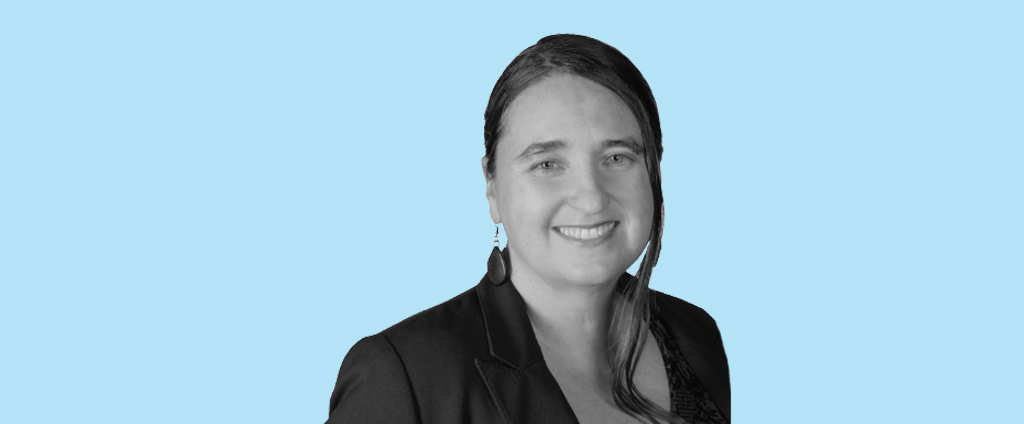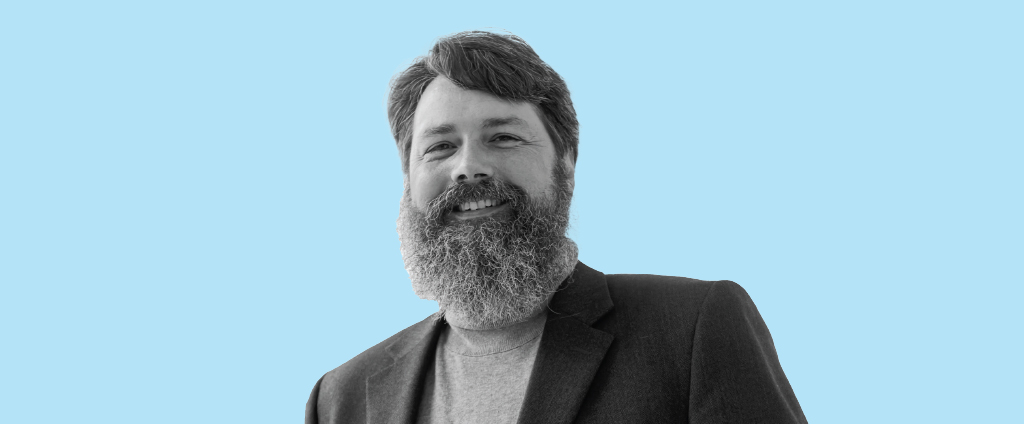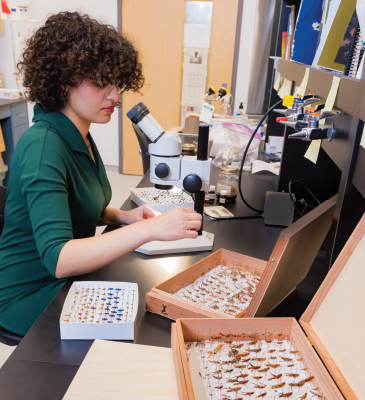York University readies debut of innovative new campus in growing York Region
By: Corey Allen

In the fall of 2024, York University will embark on an exciting new chapter with the grand opening of Markham Campus.
Located in York Region, one of the fastest growing areas in Ontario and a hub for technology and life sciences companies, Markham Campus will embed the University in the heart of one of the most diverse and dynamic urban communities in Canada.
A new campus for research, teaching and training is a significant milestone for York, which is already a multi-campus institution, with two existing campuses in the Greater Toronto Area at Keele and Glendon, as well as centres globally in Hyderabad, India and Las Nubes in Costa Rica.
In keeping with York U’s synergetic traditions, Markham Campus will expand the University’s interdisciplinary, inclusive and collaborative research environment.
Researchers at the new campus will collaborate to explore work focused on the core themes of technology and entrepreneurship and how they are driving innovation throughout our society, across four research clusters: AI & Society, FinTech,Digital Cultures and Public Policy.
As anticipation mounts for opening day, Ascend spoke with four Markham Campus researchers about their areas of expertise and their excitement for the campus launch.

Rebecca Caines
Assistant Professor, Department of Theatre, Dance and Performance, School of the Arts, Media, Performance & Design (AMPD)
Caines, a co-lead for the Digital Cultures Research Cluster, joined York from the University of Regina, where she helped build a cross-faculty art and technology program. Using her experience in the Prairies, she has co-developed a new Creative Technologies program for the School of the Arts, Media, Performance & Design (AMPD), which will be offered exclusively at Markham Campus this fall.
“York is a place that values leading-edge artistic practice, but also a commitment to social change,” she says. “It’s the perfect combination and home for me.”
Caines, who holds a PhD in Performance Studies from the University of New South Wales in Australia, describes her area of research as being at the intersection of improvised art, technology and community.
One upcoming project Caines will work on alongside her students is in partnership with the Mississaugas of the Credit First Nation to support their long-running Moccasin Identifier initiative. Caines and her collaborators will explore new ways of storytelling with augmented reality, adding a digital layer over the top of moccasin stencils that will be physically added to the floor of the Markham Campus building. Visitors will be able to scan the stencils with their cellphones to view computer-generated content, including animation, videos and drawings by students and community members, to share and learn stories about the land.
For Caines, one aspect she’s most looking forward to at Markham Campus is the facilities and equipment.
“Our students will have hands-on learning with immersive technologies, including the latest tools in virtual reality and motion capture,” she says. “For faculty members, I’m incredibly excited for my colleagues and me to have the opportunity to research and teach at the cutting-edge of our fields.”

Marios Fokaefs
Assistant Professor, Department of Electrical Engineering & Computer Science, Lassonde School of Engineering
Fokaefs is no stranger to York, having spent two and a half years as a postdoctoral fellow at the University after completing his PhD in software engineering at the University of Alberta. Fokaefs was keen to return to York as a faculty member to help shape the University’s future at Markham Campus.
“Lassonde is building two new programs (Digital Technologies and Computer Science for Software Development) for Markham Campus that are unique in Canada,” he says. “As part of their degree, our undergraduate students will combine their studies with concurrent positions at major tech companies throughout the entire program; learning doing work and working doing learning.”
Fokaefs’ expertise is in the design, maintenance and evolution of software systems. His research is particularly focused on creating DevOps solutions, bridging the gap between the development phase (Dev) and the operation phase (Ops).
Much of this work for Fokaefs has primarily involved software applications for health. Previous research of his has involved collaborating with hospitals and clinics to create smart systems to automate tasks, improve reliability and streamline processes.
As a software engineer, Fokaefs says the proximity of Markham Campus to industry is particularly exciting.
“Software engineering is a distinct discipline where in order to achieve impact, it has to be put into practice,” he says. “Markham Campus faculty and students will be able to build strong relationships with regional businesses, contribute to commercialization efforts, and apply our skills and knowledge to real-world problems. The new campus will provide York and its partners the opportunity to take applied research to the next level.”

Robert Gehl
Associate Professor and Ontario Research Chair, Department of Communication & Media Studies, Faculty of Liberal Arts & Professional Studies
Gehl arrived at York in 2022 as the Ontario Research Chair of Digital Governance for Social Justice. A critical scholar in digital media, cultures and practices, he was formerly at the University of Calgary as the Fulbright Canada Research Chair of Communication, Media and Film, a highly prestigious professorship.
Trained in the United States, Gehl was drawn north of the border because of Canada’s reputation in the media studies field.
“This country has some of the best communications researchers, philosophers and theorists in the world,” he says. “I can’t tell you how excited I am to be here at York. It’s wonderful.”
Gehl’s research seeks to understand groups of people who build alternatives to corporate social media (e.g. Facebook, X, Instagram) and how they use technology and these decentralized social networking systems (e.g. Mastodon) to govern themselves as a community, to engage in democratic deliberation and to strive for social justice.
Gehl explores this topic and more in his latest book project called Move Slowly and Build Bridges: Mastodon, the Fediverse, and the Struggle for Democratic Social Media, which is under contract with Oxford University Press.
At Markham Campus, Gehl will teach in communication, social media and public relations, a new stream in the Communication & Media Studies program, to be offered exclusively at the new campus. The stream emphasizes experiential education, with students putting learned skills into action through co-ops and internships.
Gehl says one of the advantages for Markham Campus will be its small cohort, both in terms of faculty and student body.
“It’s going to be a tight-knit group with lots of energy,” he says. “I think my colleagues are incredibly talented, and they have built an exciting program that teaches critical PR. I’m thrilled to be a part of growing this new community from the ground up.”

Kelly Bergstrom
Associate Professor, Department of Communication & Media Studies, Faculty of Liberal Arts & Professional Studies
Bergstrom is an alumna, who obtained her PhD from York, in addition to completing a postdoctoral fellowship at the University. Before returning to York in as a Markham faculty member, she was based at the University of Hawaiʻi at Mānoa. She says she traded in the year-round summer and beaches of Honolulu because the opportunity to conceive and design new programming at the brand-new campus was too good to pass up.
She says she was also motivated to return to York because of its founding vision, which is to be a welcoming and inclusive institution to a broad sociodemographic of students.
“I was a first-generation university student and York has always been about this idea that everyone deserves a university education, no matter your background,” she says. “That belief has always resonated with me, and it’s never left me, so I’m happy to be back.”
As a feminist media scholar, Bergstrom has a wide range of research interests related to digital cultures, but she has particularly studied the world of video games for more than a decade. Her gaming research focuses on understanding how people decide whether a particular game or community is for them, and what possible factors spur them to drop out or disengage.
To do this work, Bergstrom has travelled far afield to places like Iceland, conducting focus groups at fan conventions, speaking to current, former and non-players of a variety of popular games. Her research has uncovered various obstacles that hinder different societal groups from playing certain games, as well as how some games are marketed to make people feel exceptional while playing them.
For Bergstrom, she sees Markham Campus as a place for novel possibilities.
“I am already talking to engineering colleagues who will be part of our faculty cohort about potential research connections, which I would not have done before at a larger campus,” she says. “At Markham, we will be able to break outside our disciplinary boundaries and push towards new interdisciplinary collaborations, both with our students and the faculty.”
To learn more about Markham Campus, visit yorku.ca/markham
Read more

York researcher traverses tick-infested terrain to beat back insect apocalypse
A PhD student at York University is studying the effects of climate change on insect decline

Young innovators look to commercialize research with York fellowship
Four budding researchers at York University receive support from VPRI to help bring their products to market

Connected Minds: one year later
Neural and Machine Systems for a Healthy, Just Society - York University’s major research initiative, funded in part by the Canada First Research Excellence Fund - celebrates its first year of achievements

York-Queen’s art project combines VR with Anishinaabe philosophy to explore water’s hidden depths
A York University professor has partnered with a Queen’s University professor to create an immersive 3D experience that sparks critical conversations about the global water crisis
